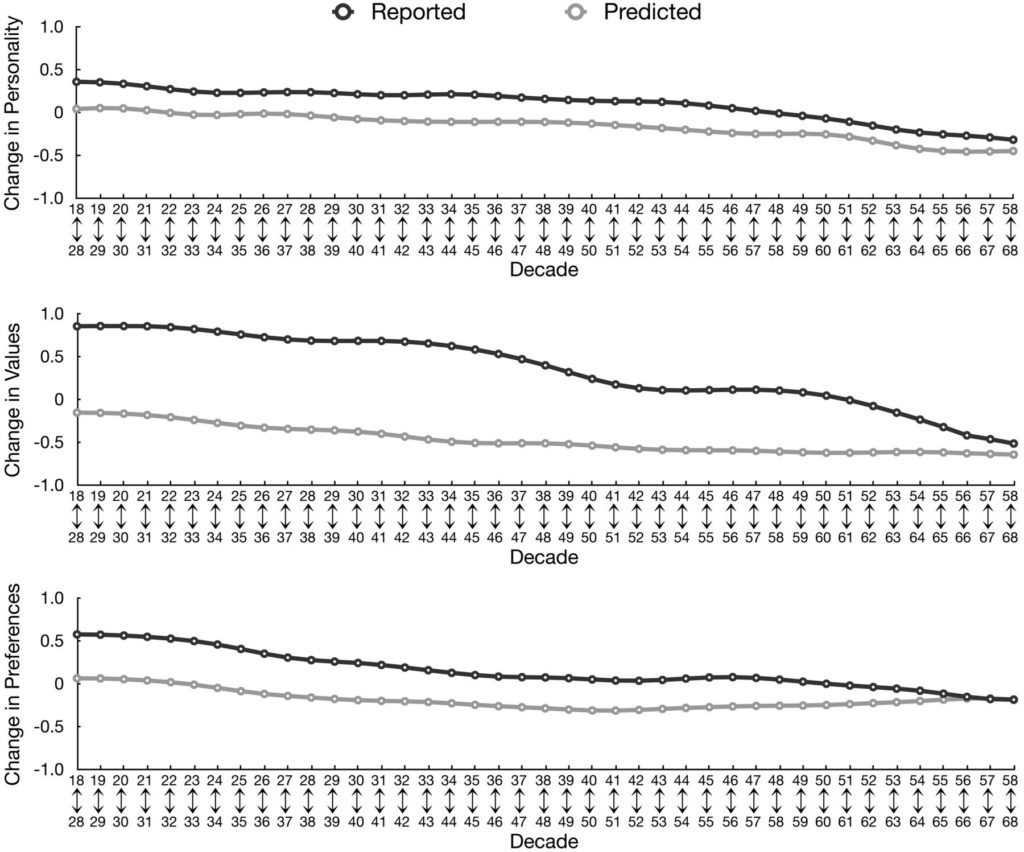The end of history illusion
Perception seems not to be reality. We already have heard this in many different contexts but when it comes to our self-perception, the perception in the context of change, we seem to think that there will not be so much difference in the future for us. Mainly that includes our preferences, our values and our personalities. Sure, if you are at the beginning of your life, there will be change in the future, but the more you progress on your timeline the less it will become. We all have the tendency to percieve our own settlement of already having become the person who is complete and will not change so much in the future; we finaly have become who we are. The fundamental thing here is, that with this perception of your self regarding personality, values and preferences you act based on them and make decisions, which are very close to that kind of self believe of who you have become. If we would ask Dan Gilbert, the mind behind “the end of history illusion”, he would be of the opinion that by denying changebility throughout each humans lifespan, we live an illusion which leads to certains concequences and not living by your fullest possibilities and potential. He did an amazing study to proofpoint that there is more change for you in the future than you would imagine. He and his research team measured the personalities, values, and preferences of more than 19,000 people between 18 to 68 years old and asked them to report how much they had changed in the past ten years and to predict how much they would change in the next ten years. Young people, middle-aged people, and older people all believed they had changed a lot in the past but would change relatively little in the future. People regard the present as a marker moment at which they have finally become the person they will be for the rest oof their lives. This “end of history illusion” had practical concequences, leading people to overpay for future opportunities to cocker their currend precerences. It seems that we “naturally” see change a posteriory, after the experienced changes, which we only summ up in the presents. And we do not abstract change for the future. To change that perspective let us live to our fullest, opens different doors, maybe doesn’t let us get so stuck in the believes who we have become and not liked at the same time. Think about it.

Birth-giver to the idea: Daniel Gilbert
Daniel Todd Gilbert is an American, multiple award-winning professor for social psychology, teaching at Harvard, and is author of the international bestseller Stumbling on Happiness, which was translated into 30 languages and has been on the NY bestseller list for more than six month; he sold over a million of copies worldwide. His focus is on how human beings navigate the complexities of time and social life. First of these interests motivates his research on affective one’s forecasting, which means, how well humans can predict the emotional consequences of their future events in their contexts, inter-temporal choices, means when and how people sacrifice for the future, and other topics in decision-making and judgement. The second of these interests lets him focus his research on social inference (how and how well people understand each other). But topic of this article is: Professor Gilbert is of the opinion that the world is not as it appears. He uses science to uncover the illusion humans have about the world, themselves, and each other – the psychology of your future self or: the end of history illusion; please find following his awesome TED Talk to The end of history illusion, which was viewed more than 22Mio times.
Sources:
(1) https://psychology.fas.harvard.edu/people/daniel-gilbert
(2) https://en.wikipedia.org/wiki/Daniel_Gilbert_(psychologist)
(3) https://www.science.org/doi/10.1126/science.1229294
(4) https://www.youtube.com/watch?v=XNbaR54Gpj4
(5) https://www.science.org/cms/10.1126/science.1229294/asset/d5310ab0-4fdc-44b4-977a-d183a333f008/assets/graphic/339_96_f1.jpeg
(6) www.sciencemag.org/cgi/content/full/339/6115/96/DC1

